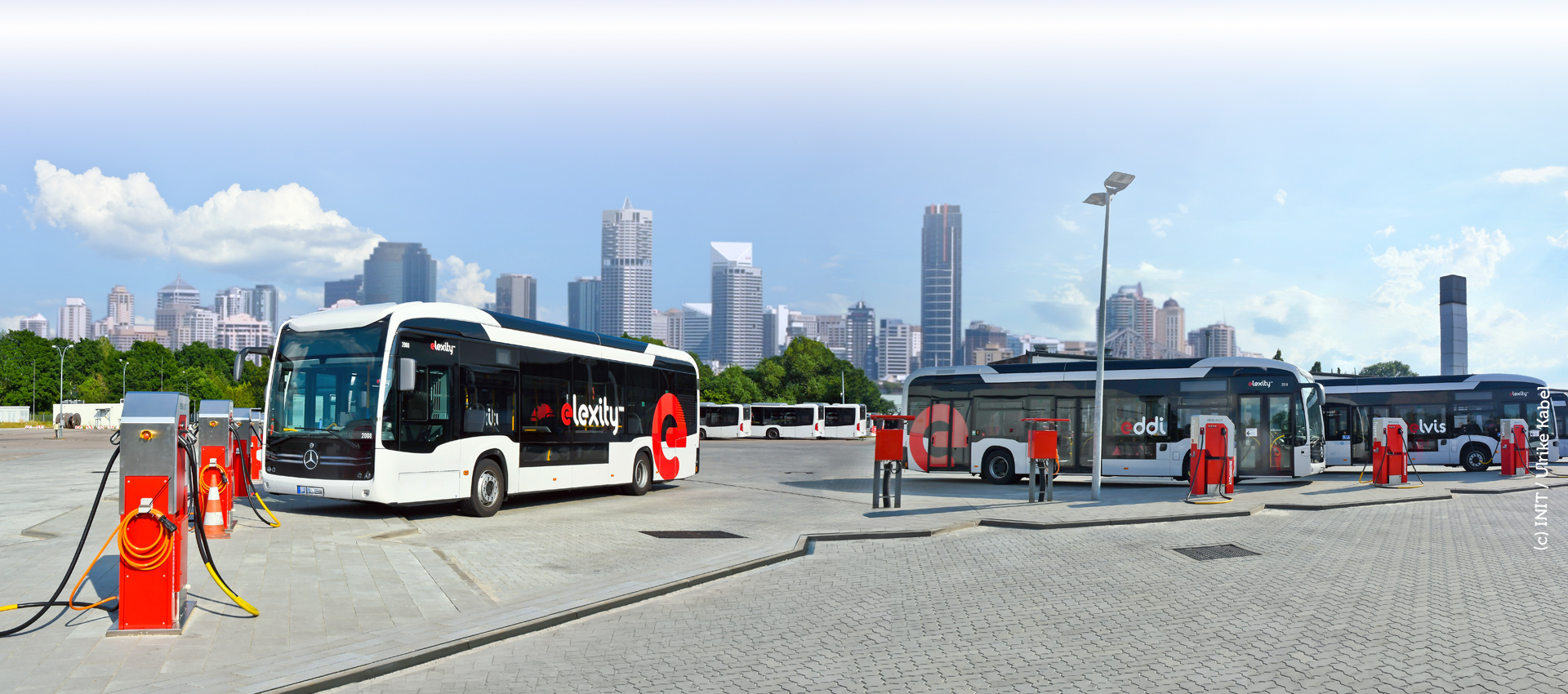Advantages of eMOBILE-PLAN
- security for investment decisions
- determination of deployment concepts
- knowledge of future personnel and vehicle requirements
Advantages of MOBILErange
- more efficient planning and vehicle scheduling
- avoidance of vehicle breakdowns
- reduction of charging reserves
- relief for dispatchers and supervisors
Advantages of eMOBILEcharge
- punctual and needs-based charging
- reduction of cost-intensive peak loads
- detection of incomplete charging processes
- electricity cost savings of around 15%
Advantages of eMOBILE-DMS
- optimised block and parking space allocation for electric and diesel buses
- efficient processes at the depot
- interaction with fleet management
and charging management
Download
Success Story
The Völklinger Verkehrsbetriebe GmbH (VVB), a German transport company, is resolutely pushing ahead with the introduction of electromobility. Since the start of their e-mobility project, they have benefited from the advantages of the INIT Group’s modular solution: all their planning, dispatching and charge management processes rely on INIT systems to maximise their efficiency. Thorsten Gundacker, Managing Director of VVB, talks about his experiences in an interview.
References
Contact

Shane Bedford
Sales Manager
INIT PTY LTD
Australia
INIT PTY LTD
Level 1, Toowong Tower
9 Sherwood Road
Toowong Qld 4066
Australia
Phone: +61 7 3310 8818
Fax +61 7 3310 8800




